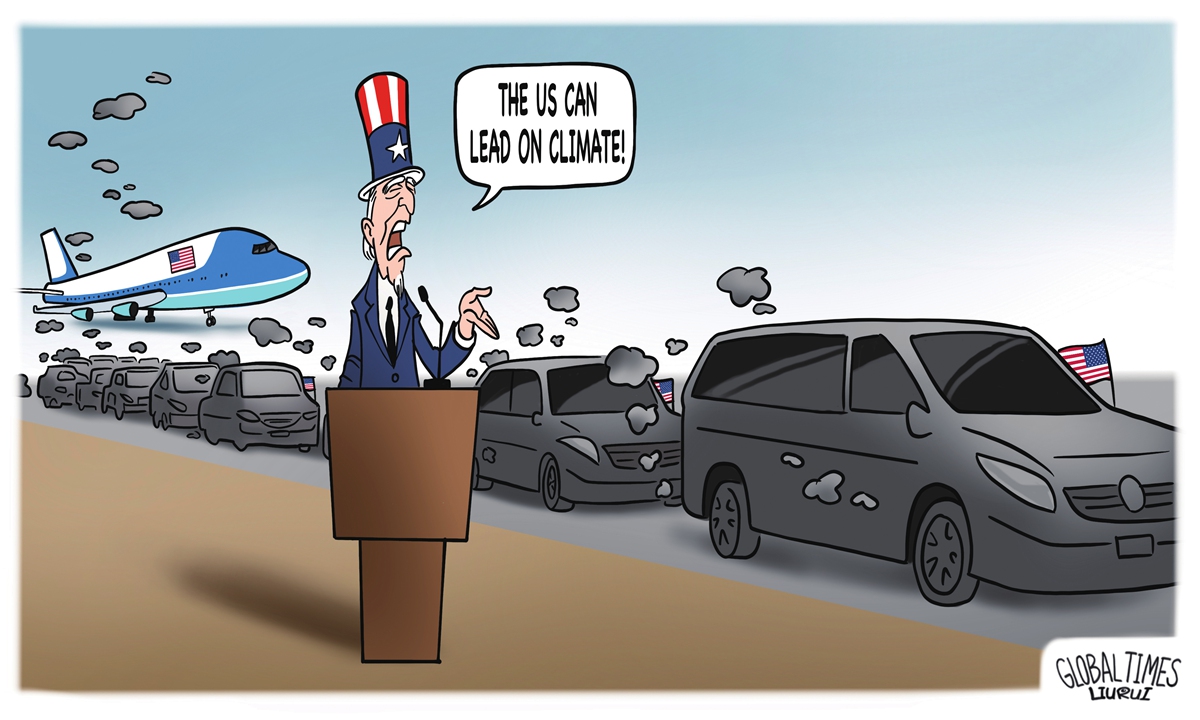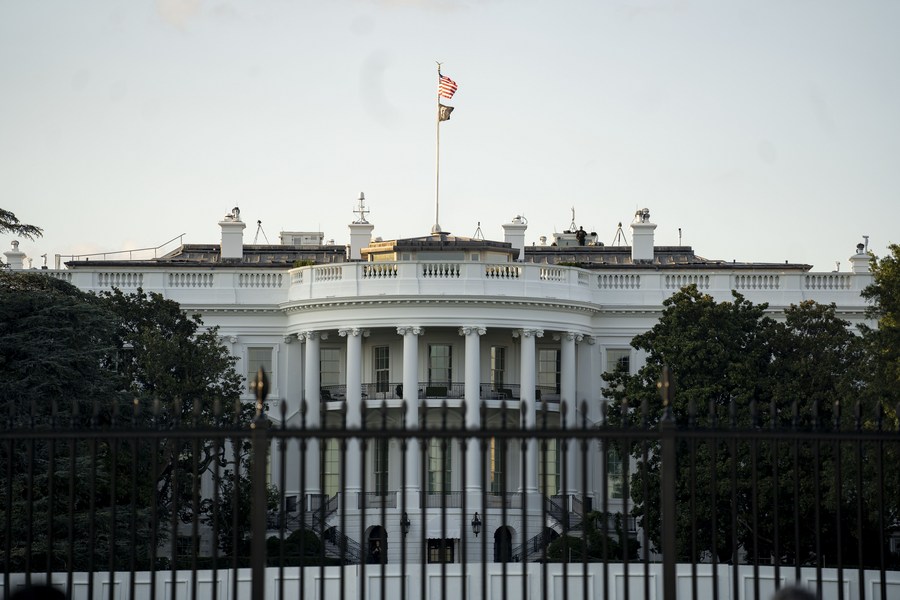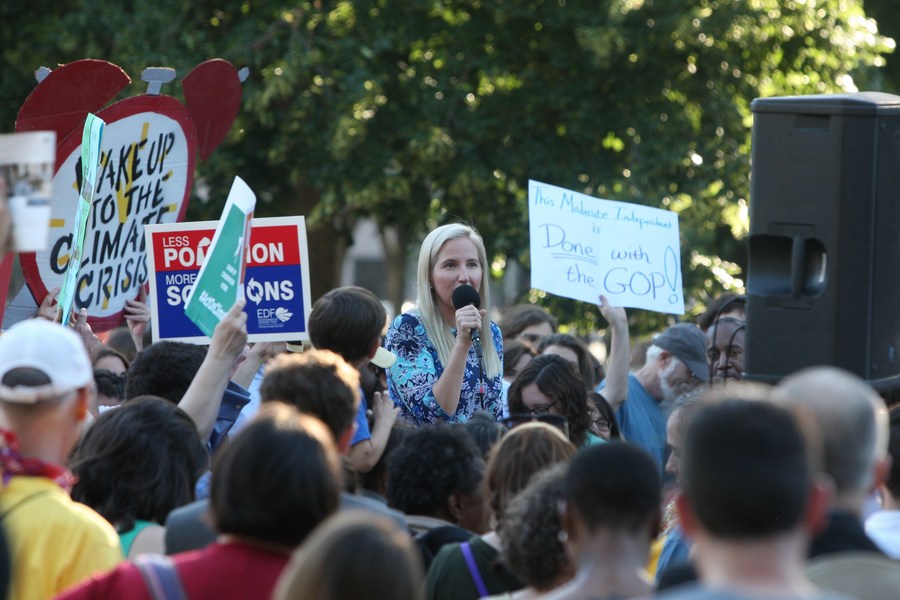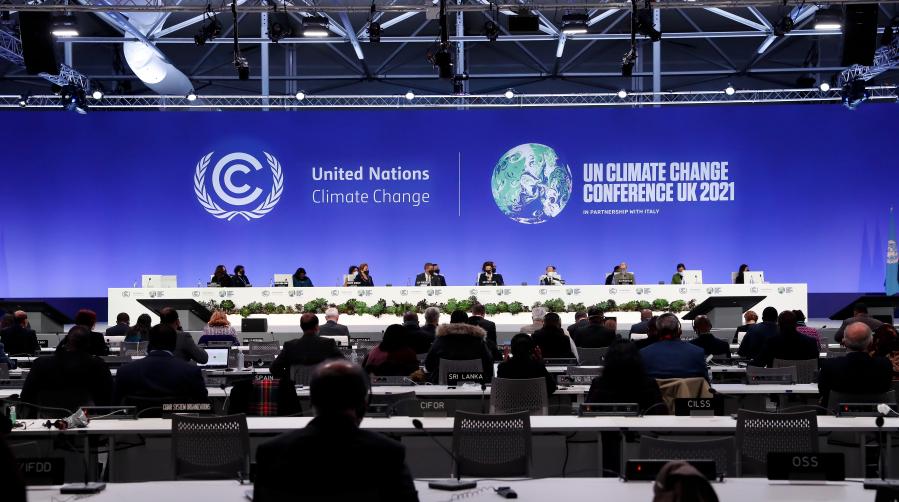A divided America casts a shadow on global response to climate change

Climate hypocrite Illustration: Liu Rui/GT
Even at the very height of climate emergencies, when US coastal cities were battered by furious hurricanes, when California was set ablaze by months-long infernos, and when an unprecedented snowstorm left millions of Texans out of power, there still existed two realities in the US: one where climate prophets cried out for drastic changes in an almost dogmatic manner, while in the other concurrent reality, climate change was being branded as nothing more than a hoax.
America’s schizophrenic attitude on climate change, which is manifested in its seasonal flip-flopping on policy-making, reckless pulling in and out of international agreements, and dissonance in actions among states, has been troublesome and worrying. A defector who has retreated from a joint battle and remains partially skeptical about his mission. Can he ever be trusted or relied upon to lead? —many may ask.
Facts illustrate that the international community can put their trust in the US—occasionally or periodically. Whether or not the world should rely upon the US to curtail its Greenhouse Gases (GHG), this is a matter that primarily depends on who is in the White House.

Photo taken on Sept. 3, 2021 shows the White House in Washington, D.C., the United States. (Xinhua/Liu Jie)
The narrow defeat of Al Gore, former US vice president and a long-time climate change activist, in the 2000 American presidential election basically set the tone for the country’s two-decades-long self-contradiction on the climate affair.
Soon after George W. Bush assumed office in 2001, he started to adopt his doctrine of indifference by excluding the US from the Kyoto Protocol, an international treaty that took aim at containing GHG emissions. Citing potential economic setbacks, the Bush administration did not only work to hamstring state efforts on emissions reductions, it also allowed energy companies like Exxon to hold sway over energy policies, meanwhile constraining scientists from discussing such issues as global warming and climate change.
The advent of Barack Obama’s presidency did bring about a flicker of hope. When he delivered an ambitious speech at the UN Climate Change Summit in 2014 and declaimed that, “There’s one issue that will define the contours of this century more dramatically than any other, and that is the urgent and growing threat of a changing climate,” the world took what he said as a late awakening, one that foretold the superpower’s resolution to change. Change did not come, unfortunately. With most of his second term overshadowed by a congressional cul-de-sac, Obama had only limp power to carry out his climate plans.

A demonstration is held to protest against U.S. President Donald Trump's decision to withdraw from the Paris Agreement outside the White House in Washington D.C., June 1, 2017. (Xinhua/Yan Liang)
During the 2016 US presidential election, the mounting discontent among Americans, who often associated climate policies with job cuts and lower wages, in red states, especially in the country’s Rust Belt area, helped Donald Trump rise to power. And Trump later did answer their call, by scrapping his predecessor’s Climate Action Plan and withdrawing the US from the Paris Agreement, a global framework agreed to avoid dangerous climate change, on his first day as the US president. Under Trump, America’s climate efforts had nearly stalled, if not backtracked towards the pre-Obama era. In a matter of two years, the US relapsed into its old bad habits, as the Trump administration rolled back the Clean Power Plan , Obama’s signature environmental policy to reduce the country’s carbon emissions, while invalidating restrictions on methane emissions flaring, and delisting climate change from its “national security threats.”
That’s what Joe Biden has inherited—a policy shambles, in which Obama’s climate legacy, if there was any, was all but crippled by his predecessor. Worse still, in pushing forward his climate agenda, Biden needs to confront not only a looming congressional impasse which in the past had sent Obama’s climate dreams down the drain, but also political infighting within his own party—two Democratic senators have cast their doubts on Biden’s 1.75 trillion social spending and climate bill and with one still reluctant to vote.
But beyond the formidable task of repairing America’s fractured climate policies, the ultimate headache for Joe Biden in his bid to carry out his climate policies is the cold reality that some states just do not align with federal policies and their voters won’t budge an inch on the issues.
Just take a look at Texas. One month after a devastating snowstorm pounded Texas, which was interpreted by many as a climate change warning presaging the future, the state’s legislators advanced two energy bills to “shield” fossil fuels from climate initiatives. “Oil and gas is the lifeblood of the Texas economy,” said Phil King, an elected member of the Texas House of Representatives, in defense of such “climate-unfriendly” bills. Similar legislative bills have also been passed in Kansas, Minnesota and Ohio, among other US states, casting a cloud over Biden’s climate agenda.

Photo taken on Oct. 31, 2021 shows a general view of the opening ceremony for COP26 in Glasgow, Scotland, the United Kingdom. (Xinhua/Han Yan)
At the Glasgow Climate Change Conference that started last week, world leaders—some attending the conference in person while others virtually—have offered their respective roadmaps to address climate change. Biden’s version is to ramp up investments into clean energy and shore up weaknesses in infrastructure. “Glass Cow [Glasgow] must be the kick off of a decade of ambition and innovation to prepare our shared future,” he said.
That declaration sounded familiar right? Remember when last time his running mate had made a similarly encouraging bid in Copenhagen in 2009, the outcome turned out to be a deceptive disappointment. Given America’s one-step-forward-two-steps-back climate policy and American states’ entrenched divisions in substantiating those policies, a more rational response is to take Biden’s promise with a grain of salt.
Photos
Related Stories
- Hong Kong watchdog urges caution after U.S. Fed votes to taper
- China urges developed countries to intensify efforts on climate change
- U.S. withdrawal from Paris Agreement wastes world 5 years to tackle climate change: Chinese envoy
- How developed nations shift blame on climate change
- Country to 'honor its word' on climate
Copyright © 2021 People's Daily Online. All Rights Reserved.










